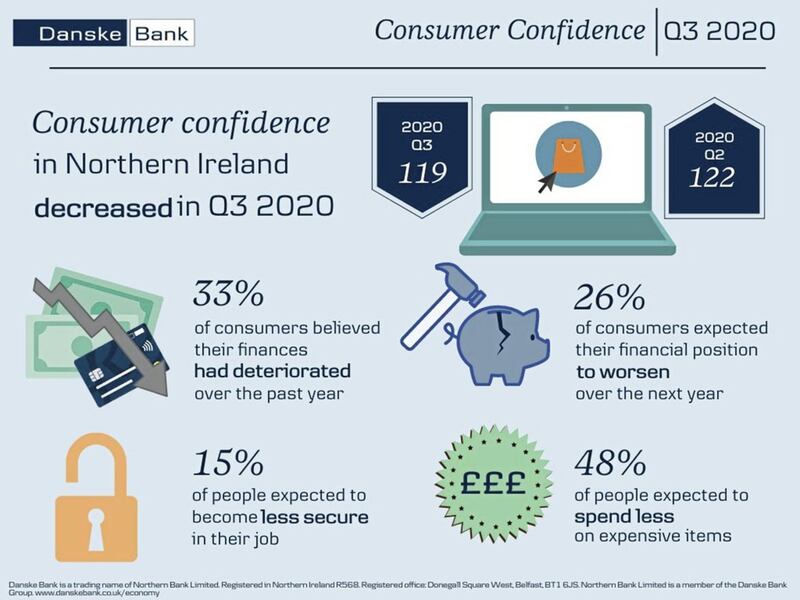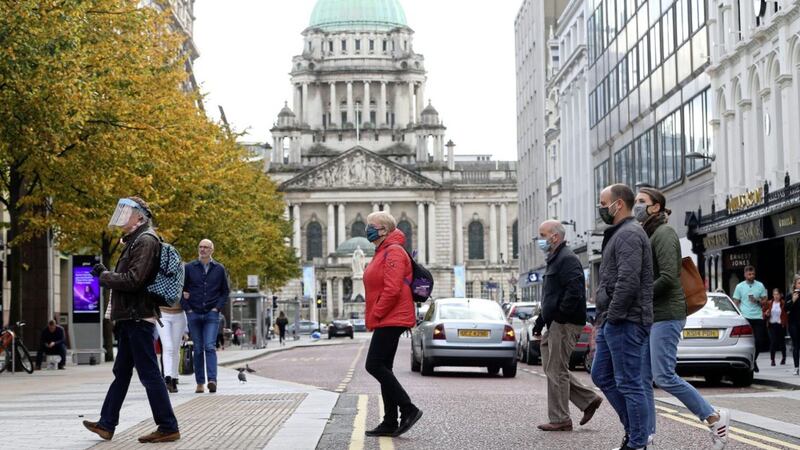CONSUMER confidence in the north continued to take a battering in the third quarter, according to the latest index from Danske Bank.
Twenty-six per cent of people surveyed expected their finances to worsen over the next year, while 48 per cent of consumers said they expect to spend less on high-value items over the next year.
The survey was carried out in September as cases of coronavirus continued to climb at a rapid pace.
It found confidence slipped from the previous quarter, returning to levels last seen around the outbreak of the pandemic in March.
However, the research was carried out just before the current four-week lockdown restrictions were announced by the Executive.
Compared with the second quarter of the year people felt less confident about their current and future financial position and the amount they expect to spend on expensive items, though expectations around job security were marginally higher. When compared with the same quarter of last year, confidence was lower in all four areas.
Fifteen per cent of people surveyed said they expect their job security to worsen.

Danske Bank’s chief economist Conor Lambe said:“The coronavirus pandemic continues to have an impact on people’s daily lives, so it is no surprise that it remained a major influence on consumer sentiment in the third quarter of the year.
“Our survey showed that the extent of the restrictions put in place to limit the spread of coronavirus had a significant impact on confidence levels, affecting some people positively and others negatively.”
The survey showed people were divided over the impact of government lockdown restrictions.
Some 20 per cent said it made them feel more confident, while 16 per cent identified the restrictions as having the largest negative impact on how they were feeling.
Brexit was another major area of concern with 16 per cent of people stating that the status of the Brexit negotiations had the largest adverse impact on how confident they were feeling/
“With the end of the transition period just two months away, the continued uncertainty around Brexit represents a key challenge for local businesses trying to prepare for a new trading relationship between the UK and the EU, and the implementation of the Northern Ireland Protocol,” said Mr Lambe.
“However, our survey showed that Brexit is also impacting consumers. We continue to believe that the UK and the EU will reach an agreement over the coming weeks but the possibility of the transition period ending without a new agreement in place represents a significant downside risk to the Northern Ireland and UK economies.”






